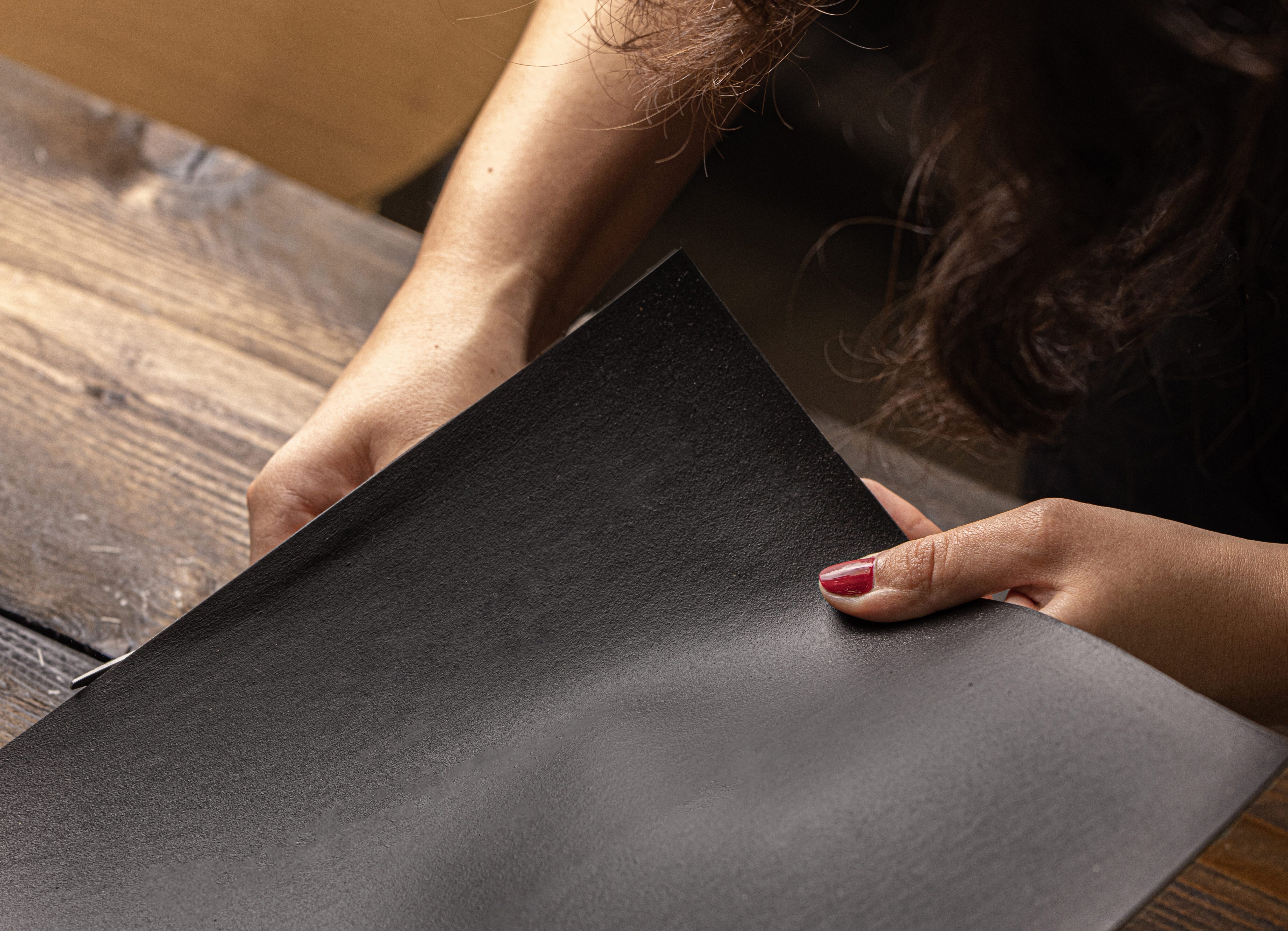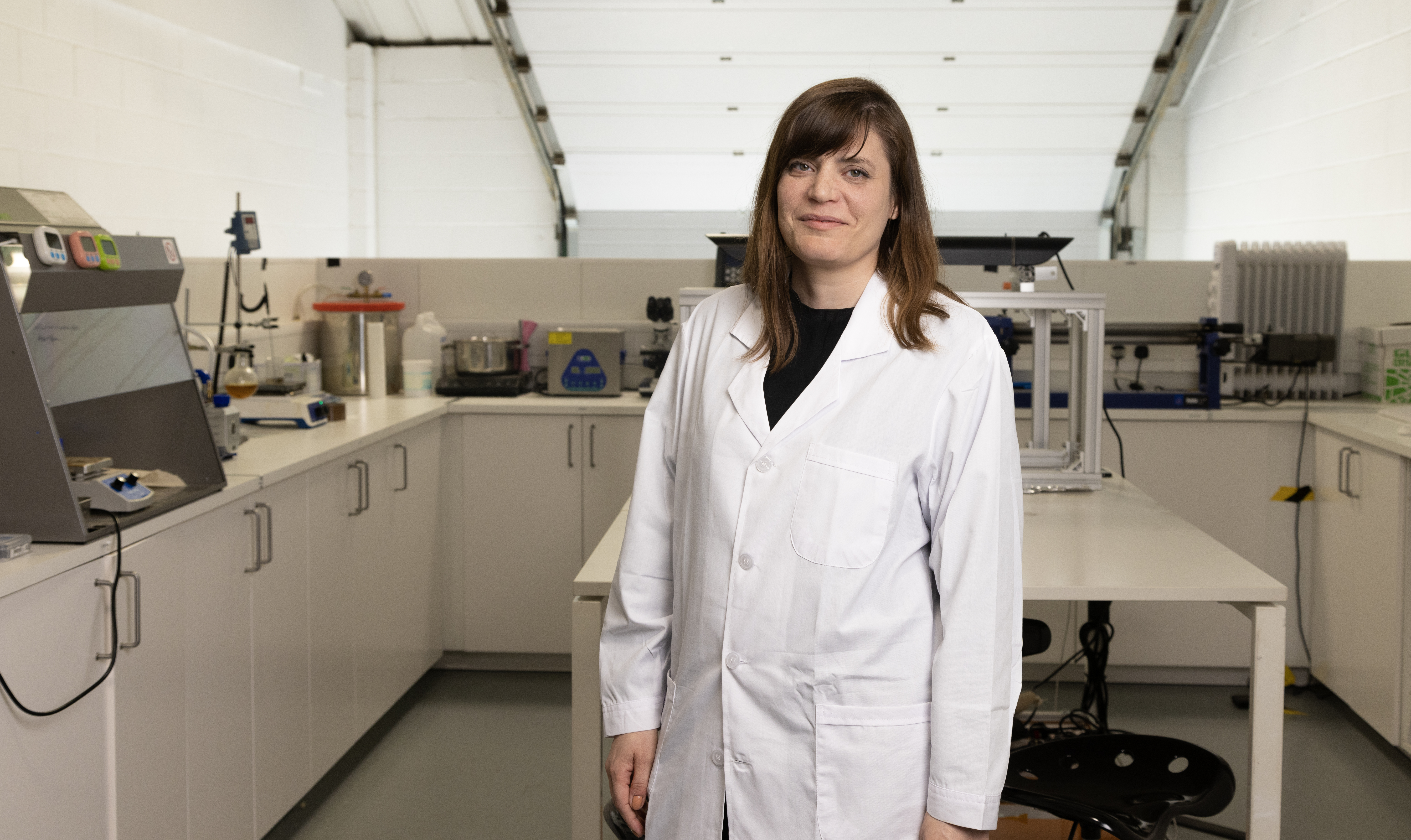New Cotton Project Launches Exhibit at the Fashion for Good Museum
The New Cotton Project exhibition featured in the Fashion for Good Museum in Amsterdam. Image by Alina Krasieva
7 October 2022
AMSTERDAM- The EU-funded New Cotton Project marks an important milestone with the launch of an installation charting the processes and progress of the project at the Fashion for Good Museum in Amsterdam.
Celebrating the Successful Launch of First Garments to be Produced Through Potential Large-scale Circular Ecosystem
- The New Cotton Project marks a key milestone with the launch of an exhibit installation in the Fashion for Good Innovation Lounge.
- The installation celebrates the recent launch of adidas and H&M Group’s garments produced through the consortium, which are the first to be produced through the demonstration of a potential circular ecosystem.
- Aalto University releases an overview white paper on Circular Business Models and the New Cotton Project Ecosystem’s Blueprint, sharing accessible insights and analysis from the project.
The installation celebrates the recent launch of the consortium’s garments produced by adidas and H&M Group, which are the first to be produced through the demonstration of a potential circular ecosystem of this scale. The launch also coincides with the release of two additional white papers produced by Aalto University, exploring circular business models and sharing an overview of the New Cotton ecosystem blueprint.
It is currently estimated that only 2% of post consumer textiles are diverted to fibre-to-fibre recycling*. The fashion industry urgently needs scalable solutions, yet the creation of circular materials to decrease dependency on virgin material has historically proven challenging, with a truckload of textiles being landfilled or burned every second. Although there have been many pilot schemes, no organisation has been able to address the problem alone. The New Cotton Project launched in answer to this challenge, aiming to demonstrate a potential blueprint for commercial circular garment production, and a new more sustainable way of working for the fashion industry.
The newly revealed adidas by Stella McCartney Sportswear Tracksuit Viscose (Gender Neutral) and H&M Group’s utilitarian jacket and trousers, are therefore are not just beautiful pieces of clothing created using a new, high-quality Infinna™ fibre created from post-consumer end-of-use textiles: they are a demonstration of the potential of a circular garment eco-system, and highlights the industry’s ability to move from a linear to a circular model of production.
Current data suggests up to a quarter of European post-consumer textiles could become textile-to-textile recycling feedstocks in the future. This includes the 494,000 tonnes of low-value post-consumer textiles identified in the recent Sorting for Circularity report as readily available for fibre-to-fibre recycling. An estimate of how much is likely to be a fit for Infinna™ technology will be available later on in the project.
Illustrating the journey of the New Cotton Project for a public audience, the new installation charts the processes and progress of the consortium in the run up to the release of the garments. Visitors will be able to learn more about the consortium through a multi-media display, including details of the Infinited Fiber Company and manufacturing process, an animation video explaining the work flows, a visual display of some of the garments and a documentary sharing the experience of the consortium through the voices of the members. The installation will also include a series of white papers produced by Aalto University which reveal further insight into the consortium’s experience of demonstrating a potential circular ecosystem within the EU textile industry.
The launch of the garments and the installation marks a two-year point in the three-year project. The final stage of the collaboration will focus on continued data collection, further academic papers from Aalto University and the Life Cycle Assessment, all of which will be shared with the wider industry with the aim of inspiring further circular initiatives in the future.
Other Articles

Fashion for Good Welcomes Ten New Innovators to Its 2024 Innovation Programme

5 FAQS About ‘Leather’ Alternatives

